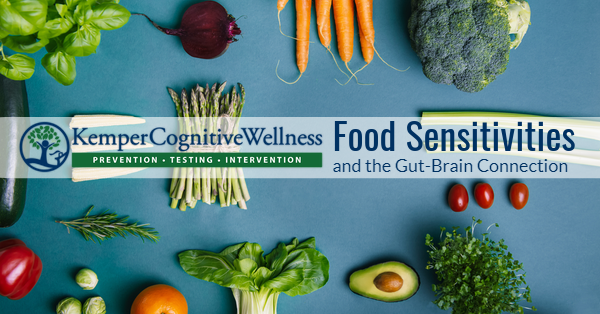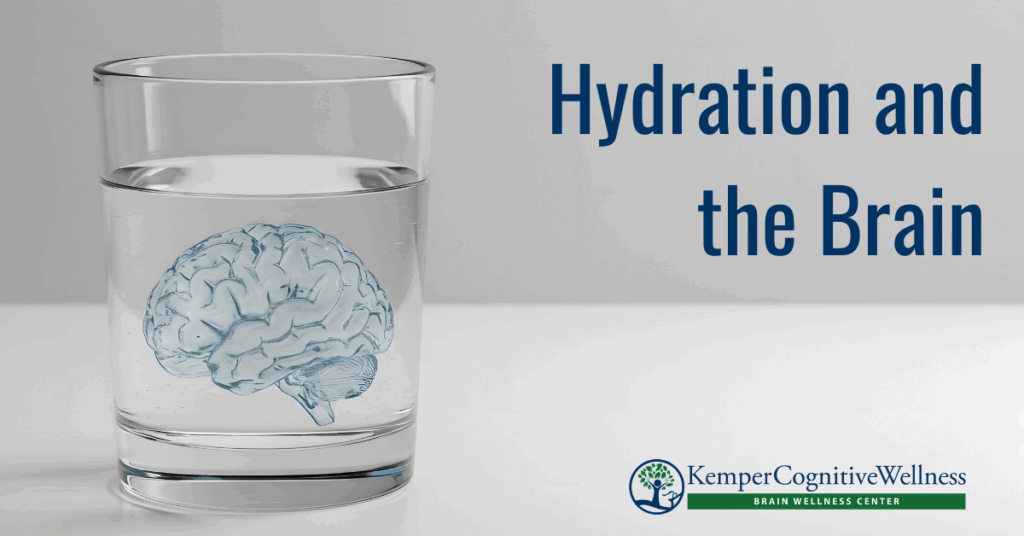By Nikki Gould, RDN, Nutrition & Wellness Coach
Though it may not be obvious, the gut and brain are connected in many ways. If you’ve ever felt “butterflies” in your stomach when you were excited, or GI upset during stressful times, you’ve experienced this connection. More practitioners are supporting brain health by addressing issues in the gut. Whether you want to improve cognitive heath or achieve better focus and mood, it is essential to support the health of your gut.
The gut and brain communicate back and forth through both physical and biochemical ways. The Vagus Nerve runs from the brain stem to the colon and serves as the primary information connection. The Enteric Nervous System, nicknamed the “second brain” is made up of more than 100 million neurons that secrete key neurotransmitters, like 90% of the bodies ‘feel good chemical’, serotonin. Your gut is also home to trillions of good flora (beneficial bacteria and other helpful microbes) that communicate with the immune system, brain and gut. Damage or disruption to any one of these can cause changes in the brain – leading to lower mood, difficulty concentrating and other cognitive difficulties.
So, what can you do to support gut health?
- Eat fermented foods containing probiotics like miso, kombucha, real sauerkraut and kimchi
- Include prebiotic/fiber-rich foods that feed the good flora
- Eliminate damaging sugars and processed foods
- Manage stress
- Consider an Elimination Diet or MRT® Food Sensitivity testing to discover trigger foods
As with every other body system, diet and lifestyle profoundly influence the health of your gut. The same processed foods and sugars that fuel disease also wreak havoc on the stomach and intestinal lining. However, other seemingly “healthy foods” can be equally as damaging to the gut-brain connection if you happen to be sensitive to that particular food.
Food sensitivities, also known as delayed hypersensitivities, are triggered when the immune system inappropriately reacts to a food or chemical and releases pro-inflammatory chemicals known as “mediators” into the bloodstream. Though symptoms are not as severe as those caused by a type I (IgE) food allergy, these mediators lead to a wide variety of symptoms negatively affecting one’s health from migraines and skin issues, to IBS and cognitive difficulties.
The difficulty lies in trying to determine just which foods are provoking your symptoms. The gold standard is an Elimination Diet, which eliminates common trigger foods like gluten, wheat soy, eggs, dairy and corn. After a couple months of strict compliance, you can then start to reintroduce these foods to see which provoke your symptoms. Unfortunately, Elimination Diets are restrictive, time consuming and even after completing one, you still may be exposed to trigger foods. For this reason, blood testing for food sensitivities takes the guesswork out, by pinpointing the specific foods that may be triggering to your symptoms.
Most food sensitivity tests focus on one possible mechanism for a reaction, such as IgG testing. However, food sensitivity reactions are complex and can involve many different immune pathways. The patented Mediator Release Test, or MRT®, looks at the end result of a chain immune reaction, quantifying the inflammatory response to 170 foods and food chemicals. It does not test for the mediators, only that a reaction has taken place, making it more comprehensive than other tests. In addition, MRT® identifies your lowest reactive foods. These are the foods that become the core of your diet, reducing inflammation and many of the symptoms you are experiencing.
I am thrilled to share that MRT is offering an amazing discount on their food sensitivity test – save 20% off until June 19th. If you are interested in food sensitivity testing, call us at 216/337-1400 to schedule.
There is no question that foods can impact the health of your brain. By increasing healthy, whole foods and identifying trigger foods, you can support a healthy gut-brain connection and optimize your cognitive health, now!





